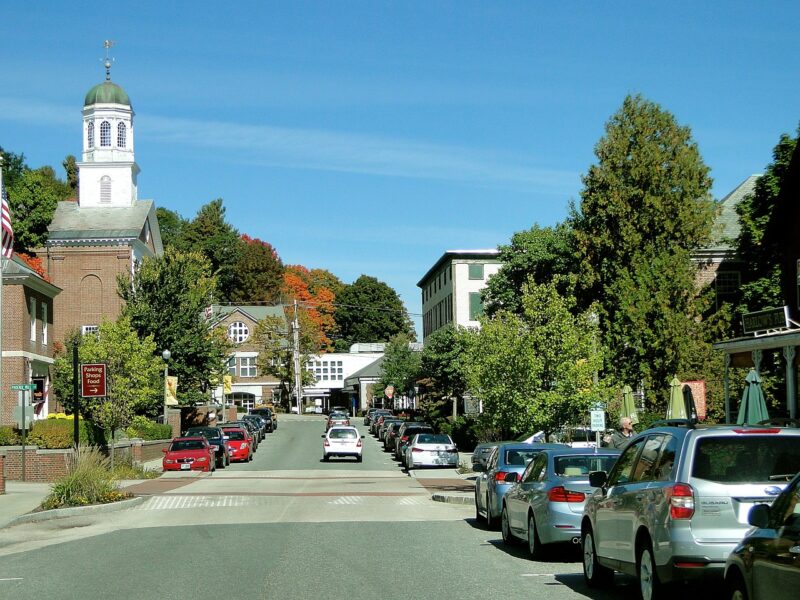The Role of Small Towns in Shaping National Cultures and Economies
November 18, 2024

Small towns often exist in the shadows of major urban centers, yet their contributions to national cultures and economies are profound and multifaceted. This article celebrates these often-overlooked communities, examining their critical roles in shaping cultural identity, driving economic vitality, and fostering social cohesion.
1. Cultural Significance of Small Towns
From traditional festivals to local cuisine, small towns cultivate unique cultural practices that contribute richly to national identity. Let’s delve deeper into how these communities serve as cultural incubators.
1.1: Preserving Local Traditions
Small towns often act as custodians of regional traditions, language, and folklore. These elements of heritage help to maintain a distinct cultural identity that resonates beyond their borders. Annual local festivals celebrate historical events and local legends, often attracting visitors and fostering pride in the community. For instance, the annual Pumpkin Festival in small-town Illinois draws thousands, showcasing local agriculture and crafts, fostering unity among residents, and attracting tourists to the region.
1.2: The Arts and Crafts Movement
Many small towns nurture vibrant arts and crafts scenes, providing livelihoods for local artisans and fostering community creativity. Art fairs, galleries, and studios contribute to a unique local aesthetic and engage residents and visitors alike. Initiatives like “Artist in Residence” programs in towns can spark creativity and draw attention to the area, nourishing both cultural and economic development.
2. Economic Impact of Small Towns
While often overshadowed by metropolises, small towns play a pivotal role in national economies. They function as critical nodes in supply chains, offer unique products and services, and provide employment.
2.1: Supporting Local Economies
Small towns promote local businesses that cater to the needs of their residents and visitors. A thriving main street lined with diverse shops, restaurants, and service providers contributes significantly to economic vitality. Moreover, the rise of e-commerce allows even the smallest towns to reach global markets, expanding economic opportunities.
Moreover, agriculture remains a cornerstone of many small-town economies. Towns rooted in farming often sustain agricultural traditions that contribute to the national food supply. Farmers’ markets not only provide fresh produce but also foster community cooperation and pride.
2.2: The Role of Tourism
Tourism represents a significant economic driver for many small towns. Unique attractions—be it historical landmarks, natural beauty, or cultural festivals—help draw visitors. For instance, towns along unique trails or scenic routes see a surge in tourism that invigorates local businesses and creates jobs. Places like the historic town of Williamsburg, Virginia, bring history to life, benefiting economy while educating visitors.
3. Social Cohesion and Community Building
Small towns are often characterized by a strong sense of community. This social cohesion plays a crucial role in fostering connections, resilience, and support among residents.
3.1: Creation of Social Networks
In small towns, relationships are typically more personal, often leading to lifelong friendships and social networks. Community events—be it fairs, farmers’ markets, or parades—provide opportunities for residents to connect, strengthening the social fabric and ensuring that everyone feels a sense of belonging.
These networks not only support individuals but also serve as vital resources during challenging times, such as natural disasters or economic fluctuations.
3.2: Volunteerism and Civic Engagement
Higher levels of volunteerism are often seen in small communities, where residents participate in town councils, local charities, and community service projects. This civic engagement fosters pride and ownership over local issues, empowering citizens to directly contribute to their town’s development.
4. Challenges Faced by Small Towns
Despite their many contributions, small towns face unique challenges, including population decline, funding deficits, and the rural-urban divide that disproportionately affects them.
4.1: Population Decline
Many small towns face declining populations as younger generations migrate to urban centers for education and employment opportunities. This shift can result in ‘brain drain,’ leaving behind an aging population, which can hamper local economic growth and social vitality.
4.2: Limited Resources
Small towns often operate with limited resources and budgets, making infrastructure improvement, educational funding, and healthcare access challenging. To combat this, communities must innovate, forming collaborations with regional partners or leveraging technology to provide services remotely.
5. The Future of Small Towns
The resilience and adaptability of small towns will define their future. Embracing technology, cultivating local businesses, and enhancing community engagement can help ensure that small towns continue to play a crucial role in the broader national context.
5.1: Embracing Technology
Many small towns are beginning to leverage technology for telecommuting and remote work opportunities. This shift opens doors for younger populations to continue living in their hometowns while accessing wider job markets. The internet also provides a platform for small businesses to reach larger audiences, enhancing local economies.
5.2: Cultivating Community Identity
As small towns evolve, positioning themselves as hubs of cultural engagement and sustainable practice can attract newcomers and visitors. Promoting local art, cuisine, and crafts can reinforce community spirit while fostering economic growth.
Conclusion
The cultural and economic significance of small towns is profound and deserves recognition. These communities contribute not just to local economies but to the very essence of national culture. As we navigate the future, supporting the resilience and vitality of small towns is essential to fostering diverse and rich national identities.
Whether you live in a bustling city or a quiet small town, recognizing these contributions can help appreciate the intricate tapestry of culture and economy that binds us all together. By investing in these communities and cherishing their unique cultures, we enrich the entire national landscape.







